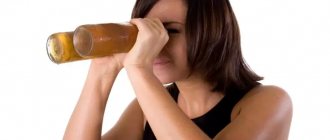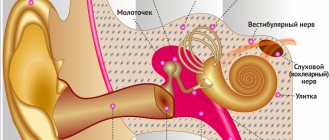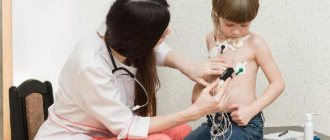Possible reasons
When inhaling cigarette smoke, nicotine, tar and other harmful substances regularly enter the human body; they not only “settle” in the lungs, but also affect vascular tone.
Within a few minutes after smoking a cigarette, a spasm of small vessels - capillaries and arterioles - occurred in the body, this caused an increase in blood pressure and caused the development of oxygen starvation of the brain and heart muscle. When you give up cigarettes, after 12-24 hours all traces of nicotine completely disappear from the blood, its effect on the blood vessels disappears and a sharp dilation of blood vessels can provoke a drop in blood pressure and the appearance of pain in the heart associated with an increase in the load on the blood vessels.
Another common reason why the heart hurts after stopping smoking is a decrease in the concentration of carbon dioxide in the blood and an increase in the amount of oxygen, which also causes an increase in the load on the myocardium. Many smokers note: they quit smoking and now their heart hurts, their heart rate increases, there is a lack of air and a feeling of tightness or pressure in the chest, all these symptoms are similar to those experienced by people who climbed a mountain peak - an excess of oxygen can cause general malaise and pain in the heart.
Unfortunately, pain in the heart can be a symptom of the development of dangerous diseases such as angina pectoris or coronary heart disease, which occur due to disruption of normal blood supply to a certain area of the heart muscle. A sharp change in the level of oxygen and carbon dioxide, dilation of blood vessels and a drop in pressure can cause a reflex spasm of blood vessels and cause cellular necrosis.
Pain in the chest area does not always signal problems in the cardiovascular system; sometimes patients confuse angina with an attack of cholecystitis or exacerbation of pleurisy. If chest pain is accompanied by symptoms of indigestion or increased body temperature, it is necessary to examine neighboring organs to exclude their pathology.
Nicotine withdrawal
Chronic smoking is defined in medicine as tobacco or nicotine addiction.
Nicotine is a psychoactive substance that causes physical dependence at the level of neurotransmitters, causing the production of dopamine in the brain. Dopamine is responsible for joy, pleasure, determination. A drop in dopamine levels stimulates a person to actively search for ways to increase it. Since the smoker’s brain experiences a constant deficiency of this neurotransmitter, only the intake of nicotine in the body raises this level. When dopamine levels drop, a person experiences feelings of anxiety, restlessness, and an automatic urge to smoke.
Possible consequences
Most often, pain in the heart area that occurs after nicotine fasting goes away on its own within a few days.
In rare cases, quitting smoking can cause the development of diseases of the cardiovascular system: burning or pressing pain in the heart area, aggravated by movement or breathing, may indicate a developing attack of angina pectoris or even myocardial infarction.
The lack of nicotine can also cause aggravation of the pathology of other organs: bronchopulmonary diseases or diseases of the gastrointestinal tract.
Constant irritation that occurs against the background of nicotine starvation, aggravated by heart pain, often becomes the cause of nervous strain and decreased performance.
Other options for dealing with nicotine withdrawal
To relieve withdrawal symptoms when quitting smoking, use:
- Use of special pharmaceuticals. These are the drugs that have a mild nicotine-replacement effect, as well as antidepressants and substances that provoke aversion from smoking. These include tablets: “Tabex”, “Lobelin”, “Cytisine”, “Champix”, “Corrida Plus”, “Zyban”, “Brisantine” and others.
- The right diet. The diet should consist of light, fortified dishes rich in minerals. For example - salads, fruits, vegetable purees. You should drink more fluid. It speeds up the body's detoxification process.
- Psychological relief. It is important to occupy yourself with something that distracts you from suffering. This could be active recreation, playing with children. any impressions that could overshadow the psychological discomfort experienced.
Don’t forget: nicotine withdrawal is an extremely difficult condition for the entire body. Don't take it lightly. Better consult a narcologist!
The text was checked by expert doctors: Head of the socio-psychological service of the Alkoklinik MC, psychologist Yu.P. Baranova, L.A. Serova, a psychiatrist-narcologist.
CAN'T FIND THE ANSWER?
Consult a specialist
Or call: +7 (495) 798-30-80
Call! We work around the clock!
What to do?
According to doctors, giving up smoking is no less difficult than giving up alcoholic beverages or any other addiction, so during this period you should take care of your well-being and the state of the nervous system in advance:
- proper rest and restful sleep will help cope with pressure drops and a constant feeling of fatigue;
- If you experience heart pain, you should give up physical activity and try to avoid any negative emotions; long leisurely walks, meeting pleasant people and favorite activities will help you cope with irritation and reduce discomfort in the body.
- If you have a history of cardiovascular diseases or suspect their development, you must immediately consult a doctor and regularly measure your blood pressure and monitor the number of heartbeats - constantly measure your pulse.
- Do not forget about the possibility of exacerbation of diseases of other organs and systems; if pain in the heart appears after smoking, you should visit a pulmonologist, have an unscheduled fluorography or x-ray, since against the background of stress, an unexpected exacerbation or development of diseases is possible.
The first 14 days without cigarettes
The body's response to quitting smoking is most intense in the first two weeks after quitting tobacco. All symptoms that appear at this time are a consequence of the so-called nicotine fasting: the body is cleansed of nicotine, but the processes in which nicotine participated have not yet been rebuilt.
We will describe in detail, day by day, below the emotional and physical manifestations that will accompany quitting smoking, and the changes in the body at this time.
Then the symptoms will no longer change daily. A former smoker gets used to the normal state, and the changes will not be as bright and noticeable as in the first days. Therefore, further we will describe the consequences of quitting nicotine on a monthly basis.
First day
At the beginning of the journey, a person who is trying to quit a bad habit feels an emotional uplift, is determined to get rid of the addiction and is confident in future success. Against this background, the craving for nicotine is absent or easily blocked by willpower and distraction by other things.
The carbon monoxide content in the blood gradually decreases and, on the contrary, the oxygen content increases. A person feels that it has become easier to breathe; an excess of oxygen can even cause slight dizziness. For many experienced smokers, this ease of breathing becomes a revelation.
Some experience a decrease in appetite, weakness, and slight anxiety. You may have difficulty falling asleep or have trouble staying asleep.
Quite often it is recommended to keep a diary to record all stages of the addiction recovery process.
Second day
Symptoms of nicotine starvation begin. A severe cough and shortness of breath appear.
The ciliated epithelium of the lungs begins to restore its functions. Sputum production is reduced. The inflamed intestinal mucosa begins to regenerate. Appetite decreases, and mild abdominal pain may occur. There may be an increased urge to urinate.
There is almost no change in the psychological state. The person is still on the rise, but slight irritability appears, which is quite easy to suppress with an effort of will. Self-hypnosis techniques help, constant reminders to yourself why the decision was made to quit (recovery).
Sleep is often restless; nervousness and obsessive thoughts can cause problems falling asleep. You may feel drowsy during the day.
The third day
The tone of blood vessels increases, blood supply to the heart and brain improves. Regeneration of the bronchial mucosa begins, normalization of the pancreas.
The physical craving for cigarettes decreases slightly. While these changes are invisible, they occur at the cellular level.
The skin becomes dry, begins to peel, and small pimples (dry) may form.
Appetite increases, cravings for sweets appear (or intensify). Heartburn may bother you.
Some people experience tinnitus, dizziness, and a feeling that their heart is “squeezing.” Symptoms of psychological dependence intensify. A former smoker becomes more and more nervous, it is difficult for him to concentrate on anything, his thoughts always return to the cigarette.
Fourth
By this time, dizziness usually goes away, and the blood supply to the brain normalizes. But I still have concerns about tinnitus and surges in blood pressure. The face and fingers may swell.
Cough continues; Often a person has the feeling that there is a viscous mucous lump in the throat - the latter means that a restructuring of the system for producing bronchial secretions is taking place in the bronchi.
Emotionally, aggressiveness decreases and depression goes away. Many patients at this stage say that they expected more serious manifestations of nicotine withdrawal.
The sleep is still disturbing and superficial. Increased appetite and cravings for certain foods persist.
Fifth
Regeneration of the respiratory system continues, normalization of the functionality of the bronchi and lungs. But you still feel a lump in your throat, and dark mucus may come out when you cough
By this time, little remains of the emotional high of the first day. There is a risk of breakdown, which is further facilitated by deteriorating health. It is important to remember that all quitters experience this, and many quite successfully.
Small microcracks begin to disappear from the surface of the tongue. The perception of taste is restored.
Sixth
The functioning of the stomach and pancreas continues to normalize. Increased thirst often appears, and with it frequent urination. Some people experience bitterness in the mouth and painful sensations in the liver area. Appetite is reduced.
Many people note sweating, dry mouth, trembling hands, and nausea during this period.
Those who quit smoking become nervous, aggressive, and sometimes whiny. Every little thing causes an emotional reaction, and self-control decreases. You can consult your doctor and start taking anti-anxiety medications.
Seventh
The body is rebuilding to work without nicotine, although mucus continues to be released when coughing, and the feeling of a lump in the throat has not yet gone away. There may be occasional bowel movements. Fatty foods are poorly accepted (heartburn may occur), but overall appetite increases. The skin remains dry and flaky.
“Cigarette syndrome” and other provoking situations.
Tenth
Internal motivation is falling, so now those who quit smoking really need the support and encouragement of loved ones and those around them. A person can hardly tolerate people smoking nearby.
The restoration of the immune system begins. The cough continues. If light yellow or gray clots come out during a cough, you should definitely contact an otolaryngologist. A cough can be softened with a warm drink.
Eleventh
More oxygen enters the body, which can cause dizziness, trembling of fingers, and headaches.
Emotional sensitivity, temper, or vulnerability for any reason persists.
There is a desire to test yourself by smoking “just one cigarette” and remember its taste. At the same time, the smell of tobacco smoke is disgusting.
Appetite is still increased.
Twelfth
The condition of the skin improves, largely due to the normalization of blood circulation. A healthy complexion returns.
The cough softens, and chronic inflammation in the lungs gradually disappears. Intestinal functions are restored.
The neuropsychic state has not yet improved, which means that the person still greatly needs the support of loved ones.
Thirteenth
Malaise of uncertain localization may occur, a feeling of heaviness in the back of the head, and weakness may appear. There are surges in blood pressure.
Usually during this period a person strives to reach the two-week mark, so the risk of relapse is not very high - the desire to take a cigarette is suppressed by this desire.
Fourteenth
The cough begins to subside, the complexion continues to improve, and the yellow coloring of the fingers goes away. Vegetative-vascular disorders may still be present - lethargy, drowsiness, weakness.
Two weeks is the first serious milestone, and it is psychologically important not to break down on this day. A common mistake is to assume that one cigarette after 14 days of abstinence will not harm. In fact, it can derail the entire smoking cessation process.
What not to do?
Pain in the heart can frighten even the bravest person, if this pathology occurs against the background of quitting smoking, often the first instinct of a smoker is the desire to immediately take up a cigarette again, but doctors categorically do not recommend doing this. A nicotine attack against the background of vascular pathology can cause irreversible consequences in the heart muscle - a sharp narrowing of blood vessels can provoke a heart attack or angina attack, and an increase in blood pressure often causes hypertensive crises or even strokes.
Also, without consulting a doctor, you should not take medications that stimulate heart activity, and of course you should avoid drinking strong tea, coffee and other products containing caffeine.
The changes that occur in the body during nicotine withdrawal greatly increase the load on the heart muscle, so you should try to avoid situations that require stress - lifting weights, actively playing sports or being very nervous.
The appearance of pain in the heart is always a dangerous sign and should not be ignored under any circumstances; a visit to a cardiologist or therapist will not only relieve the patient of unpleasant sensations, but can also help timely diagnose many dangerous diseases of the cardiovascular system.
One year after quitting smoking
A year without cigarettes is a serious achievement. During this period, the body usually recovers so much that the risk of stroke (by 30%), heart attack (by 50%) and the likelihood of lung and liver cancer (by 80-90%) is reduced. Women who have become pregnant by this point do not have to worry about the risk of miscarriage - its probability is almost the same as for non-smokers.
The risk of relapse is minimal, but it is worth remembering what you went through to get to this point. It is not worth risking such an achievement for the sake of one cigarette.










